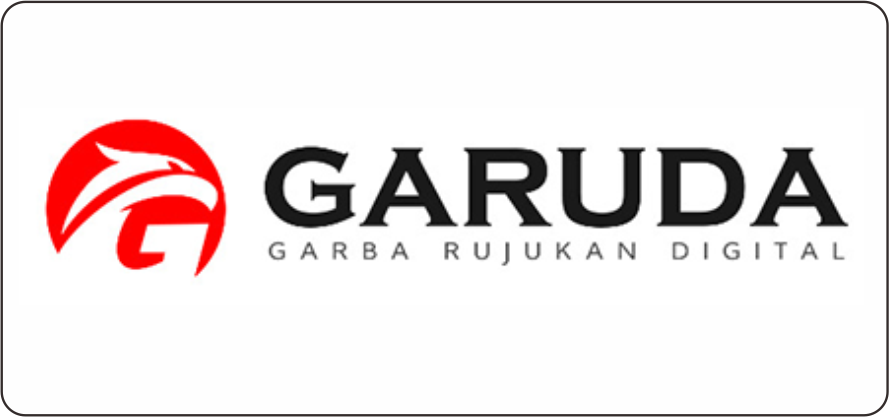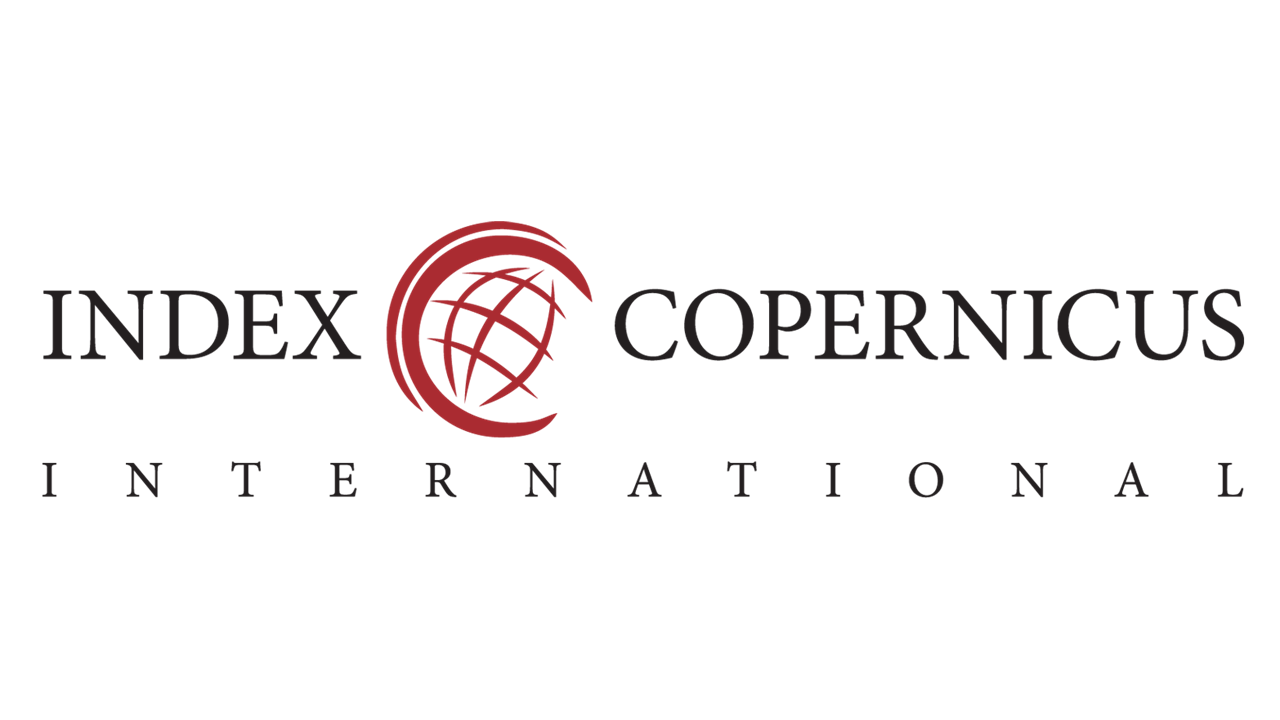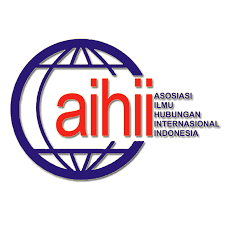Publication Ethics
Jurnal Studi Diplomasi dan Keamanan is committed to upholding the highest standards of publication ethics and takes all possible measures against publication malpractice. Authors who submit papers to us attest that their work is original and unpublished, and is not under consideration for publication elsewhere. In addition, authors confirm that their paper is their own; that it has not been copied or plagiarized, in whole or in part, from other works; and that they have disclosed actual or potential conflicts of interest with their work or partial benefits associated with it.
According to the Committee on Publication Ethics (COPE), ethical oversight should include but is not limited to, policies on consent to publication, publication on vulnerable populations, ethical conduct of research using animals, ethical conduct of research using human subjects, handling confidential data and ethical business/marketing practices. Paradigma: Jurnal Masalah Sosial, Politik, dan Kebijakan is committed to considering appeals concerning our authors' non-observance of ethical principles.
Research Involving Human Subjects
When reporting studies that involve human participants, authors should include a statement that the studies have been approved by the appropriate institutional and/or national research ethics committee and have been performed in accordance with the ethical standards as laid down in the 1975 Declaration of Helsinki (https://www.wma.net/what-we-do/medical-ethics/declaration-of-helsinki/), revised in 2013, and its later amendments or comparable ethical standards.
If doubt exists whether the research was conducted in accordance with the 1975 Helsinki Declaration or comparable standards, the authors must explain the reasons for their approach and demonstrate that the independent ethics committee or institutional review board explicitly approved the doubtful aspects of the study. At a minimum, a statement including the project identification code, date of approval, and name of the ethics committee or institutional review board should be stated in Section ‘Ethical Approval’ of the article.
An example of an ethical statement: "All subjects gave their informed consent for inclusion before participating in the study. The study was conducted in accordance with the Declaration of Helsinki, and the protocol was approved by the Ethics Committee of XXX (Project identification code)."
This statement is to clarify the ethical behavior and legal standards of all parties involved in the publishing process of Jurnal Studi Diplomasi dan Keamanan, including authors, editorial board members, reviewers, and publishers. This journal expects all parties to understand this ethical policy before submitting or accepting to review a manuscript. It frowns at and will not tolerate any form of copyright abuse or publishing malpractice. This is in accordance with our commitment and determination to prevent ethical misconduct which we recognize as a growing problem in academic and publishing circles. This statement is based on COPE's Core Practices (https://publicationethics.org/core-practices).
Duties of Authors
Authors of Jurnal Studi Diplomasi dan Keamanan should submit an original work which has not been published and is equally not under the consideration of other journals or publishers. Original paper means the article is not only repeating the previous work. Submitting the same manuscript to more than one journal constitutes unethical conduct. It is unacceptable.
The report of an original research paper should be presented in detail and accurately. It uses citation or quotation properly when replicating the work, ideas, and/or words of others to minimize the possibilities of plagiarism and other research fraud including data fabrication and falsification. It is mostly discovered in the practice of modifying results, the sources, and improper interpretation of the observation to make a convincing elaboration.
The corresponding author should inform the editor once they find significant errors or inaccuracy in their publication to make a retraction or correction. When necessary, the author must disclose the data to the editor during the process of review for the accuracy of the report.
Proper acknowledgment of people involved must always be made. If they have made a significant or substantial contribution to the conception, design, execution, or interpretation of the reported research, they should be listed as co-authors. The corresponding author has a responsibility to ensure that those co-authors have agreed to submit their work for publication. The corresponding author must also disclose any sources of funding and declare that it would not influence the result of the report.
Political and behavioral studies sometimes involve human subjects. If the manuscript contains this method, it is unethical for the author to exploit and/or disclose any confidential data or information on the human subject.
Reporting standards
Authors of reports of original research should present an accurate account of the work performed as well as an objective discussion of its significance. Underlying data should be represented accurately in the paper. A paper should contain sufficient detail and references to permit others to replicate the work. Fraudulent or knowingly inaccurate statements constitute unethical behavior and are unacceptable.
Data Access and Retention
Authors are asked to provide the raw data in connection with a paper for editorial review, and should be prepared to provide public access, and should in any event be prepared to retain such data for a reasonable time after publication.
Originality and Plagiarism
The authors should ensure that they have written entirely original works, and if the authors have used the work and/or words of others that this has been appropriately cited or quoted.
Multiple, Redundant or Concurrent Publication
An author should not in general publish manuscripts describing essentially the same research in more than one journal or primary publication. Submitting the same manuscript to more than one journal concurrently constitutes unethical publishing behavior and is unacceptable.
Acknowledgement of Sources
Proper acknowledgment of the work of others must always be given. Authors should cite publications that have been influential in determining the nature of the reported work.
Authorship of the Paper
Authorship should be limited to those who have made a significant contribution to the conception, design, execution, or interpretation of the reported study. All those who have made significant contributions should be listed as co-authors. Where there are others who have participated in certain substantive aspects of the research project, they should be acknowledged or listed as contributors.
The corresponding author should ensure that all appropriate co-authors and no inappropriate co-authors are included on the paper, and that all co-authors have seen and approved the final version of the paper and have agreed to its submission for publication.
Duties of Editors
Editors are responsible for an initial review of a manuscript to evaluate the originality and do the first screening of any practices of research fraud. During the review, an editor must only consider the content of the article regardless of gender, race, sexual orientation, religious belief, ethnic origin, citizenship, or political philosophy of the author. Any information related to the author and unpublished material treated as a confidential document must not be shared to other people outside the publishing process of the article or used for the editor's own research without the written consent of the author.
The editor is responsible to fairly and wisely select the peer-reviewer who has sufficient expertise and avoid those with conflict of interest. On the other hand, the editor must disclose or refrain from assuming this responsibility if he/she becomes a subject of this issue.
The editorial board has the responsibility to make decisions about the publication of an article. However, if there is evidence of research fraud such as plagiarism, copyright infringement, or libel, editors have the right to contact the author to justify and confirm the data in their article. This right and responsibility are given to the editorial board in order to have a guarantee of an ethical and high-quality article.
Duties of Reviewers
Reviewers or advisory board is a group of people who are assisting the editorial board in making decisions and improving the quality of articles at the same time. Therefore, reviewers play an important role in any scientific journal publication.
A reviewer must provide high-quality feedback on the manuscript assigned to them. It must be constructive, clearly stated, with supporting arguments or references. The review process must be conducted objectively such that the reviewer's personal criticisms to the author should not mark the work.
Any selected reviewer who feels unqualified or cannot provide feedback in a timely manner should notify the editors and excuse himself/herself from the review process. Therefore, if she/he wants to pass the manuscript to their colleague to review, they must have the editor's permission beforehand.
Reviewers should declare any competing interests to the editor before accepting to review or during the review process. They should decline from reviewing if it generates a competitive, collaborative or other relationship challenges with any of the authors, companies, or institutions connected to the papers.
All information during the peer-review process must be kept confidential and must not be taken advantage of. Afterward, the reviewer has a responsibility to give a recommendation and notify the editor if they found any proofs of fraud during the peer-review process.
Contribution to Editorial Decisions
Peer review assists the editor in making editorial decisions and through the editorial communications with the author may also assist the author in improving the paper.
Promptness
Any selected referee who feels unqualified to review the research reported in a manuscript or knows that its prompt review will be impossible should notify the editor and excuse himself from the review process.
Confidentiality
Any manuscripts received for review must be treated as confidential documents. They must not be shown to or discussed with others except as authorized by the editor.
Standards of Objectivity
Reviews should be conducted objectively. Personal criticism of the author is inappropriate. Referees should express their views clearly with supporting arguments.
Acknowledgement of Sources
Reviewers should identify relevant published work that has not been cited by the authors. Any statement that an observation, derivation, or argument had been previously reported should be accompanied by the relevant citation. A reviewer should also call to the editor's attention any substantial similarity or overlap between the manuscript under consideration and any other published paper of which they have personal knowledge.
Disclosure and Conflict of Interest
Privileged information or ideas obtained through peer review must be kept confidential and not used for personal advantage. Reviewers should not consider manuscripts in which they have conflicts of interest resulting from competitive, collaborative, or other relationships or connections with any of the authors, companies, or institutions connected to the papers.
Duties of Journal and Publisher
The journal and publisher should be committed, ensuring that any sources of funding have no influence on the editorial decision. They must construct a policy which accommodates the merits of the development of science and the protection of the intellectual rights of the author. The journal and editor should allow corrections, retractions, and revision from the author through a flexible mechanism after getting the endorsement of the editor.
Publication decisions
The editor of the Paradigma: Jurnal Masalah Sosial, Politik, dan Kebijakan is responsible for deciding which of the articles submitted to the journal should be published. The editor may be guided by the policies of the journal's editorial board and constrained by such legal requirements as shall then be in force regarding libel, copyright infringement and plagiarism. The editor may confer with other editors or reviewers in making this decision.
Fair play
An editor at any time evaluate manuscripts for their intellectual content without regard to race, gender, sexual orientation, religious belief, ethnic origin, citizenship, or political philosophy of the authors.
Confidentiality
The editor and any editorial staff must not disclose any information about a submitted manuscript to anyone other than the corresponding author, reviewers, potential reviewers, other editorial advisers, and the publisher, as appropriate.
Disclosure and conflicts of interest
Unpublished materials disclosed in a submitted manuscript must not be used in an editor's own research without the express written consent of the author
Disclosure and Conflicts of Interest
All authors should disclose in their manuscript any financial or other substantive conflict of interest that might be construed to influence the results or interpretation of their manuscript. All sources of financial support for the project should be disclosed.
Fundamental errors in published works
When an author discovers a significant error or inaccuracy in his/her own published work, it is the author’s obligation to promptly notify the journal editor or publisher and cooperate with the editor to retract or correct the paper.










